Don't wanna be here? Send us removal request.
Photo

The Perfect Storm
Treatment begins
Sitting in the Consultant’s office on July 1st, 2 and a half weeks before my 30th birthday I was told that my anti-CCP antibodies were strongly positive at 189. A normal reading of 0-17 is considered normal, if it had been 25 there might have been some doubt, a test here or there may have been done. But 189 was definitive. My diagnosis is seropositive rheumatoid arthritis.
What follows is a blur of medical jargon, various definitions of ‘normal’, numerous explanations of how for now I am ‘abnormal’ or have a ‘new normal’. Very little is known about what causes rheumatoid arthritis. It can be genetic (there is no history in our family), it can be the result of stressful events (hi there, last 12 months of my life), putting your body under too much high intensity physical exertion (guilty as charged) or a plethora of other factors. I will never know how or why I became classified as seropositive rheumatoid arthritis. I’ve decided there is little point dwelling on it or speculating, it makes an already stressful and frustrating situation even more so. As my dear friend Debra who herself has suffered a life-changing physical event over the past few months (and far more catastrophic than my own) says: This is our new normal. As my Consultant summarised it; everything has come together in a perfect storm for you and right now, as you sit here, you are in the eye of that storm, but it’s my job to help you weather it.
And then he said something that I appreciated more than anything else he could have said at that moment. He told me it was ok to feel angry and frustrated. For someone who doesn’t sit around for long (unless I have a good book in hand), who feels that I haven’t lived the day without getting my heart rate up to threshold and who is more comfortable in cycling kit/running shoes/a swimsuit (not in the glamour photoshoot sense, more submerged in water) being on enforced rest partly through medical advice, but also because my body just can’t do it right now it is the most frustrating, dare I say, depressing prospect. He told me he knew it was deeply unfair. That someone who was referred to a cardiologist earlier in the year for having a heart rate so low it scared my own GP was now confined to a largely sedentary period.
Signs of a great doctor, in my opinion, are if they take the time to explain a condition and its treatment, but most of all, that they leave the decision-making for treatment with you. After all, it is your body after all. So I could start a course of steroids (they work well short term, but we all know steroids long-term is a really terrible idea), I could start on the most common form of treatment - Methotrexate (it is the magic pill for many, but has some horrific-sounding side effects and takes quite a while to build up into your system), I could take on a combination of daily steroids for a short term period of a month or two with a weekly dose of Methotrexate with a chaser of folic acid (to help reduce the risk of toxicity to the liver - told you the side effects didn’t sound a barrel of laughs) or I could do nothing (he didn’t advise this, if I thought I felt bad now, come back and see him in a few months, crippled and begging). So unsurprisingly we settled on the combination therapy of steroids in the short term whilst I get Methotrexate into my system. So now I have a drug diary (I am yet to take the plunge and buy a natty plastic pill organiser with the days of the week on - the OAP version of pants with the days of the week on from when you were a small child?!) and have a fortnightly visit to the GP surgery for blood tests to keep an eye on liver and kidney function and blood toxicity. In a couple of weeks I will have my follow up appointment with a base chest X-ray - partly to monitor whether the RA starts to affect my lungs, but also to spot whether the drugs damage them too (win-win, or lose-lose) and have had to enter territory hitherto unknown to me: being kind to my body and listening to it.
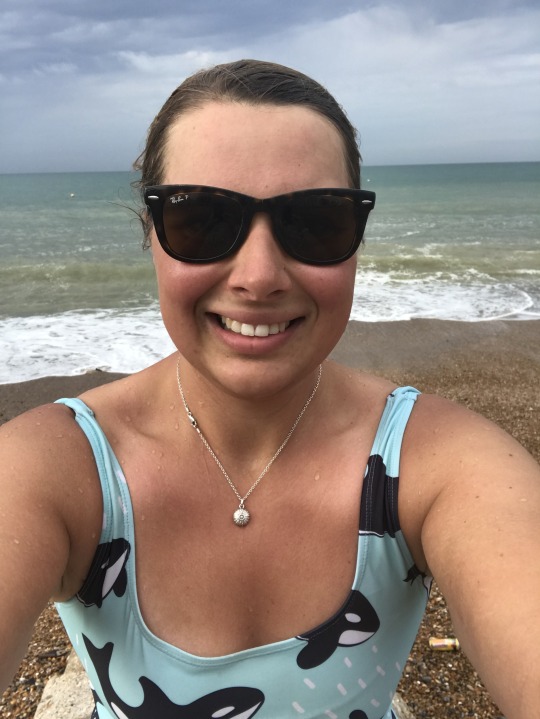
A new normal
For too long my training strategy for cycling or more recently running was to push through the pain. Don’t worry if your lungs/knees/hamstrings/shoulders/feet hurt, the pain will be temporary. Just finish this effort. Get that PB. Shave all of a second off your previous time. No one else is probably at all interested, but to me (and someone whose own addiction to similar behaviour had too much of an influence on me at the time) that was what mattered. I may agonise for hours, days, weeks afterwards that I hadn’t done well enough in my (or their) eyes. When I finished running a 5k, 10k, 10 mile or half marathon distance I found it impossible to say to myself: well done for getting out there, that head wind made it tough, still further than you’ve run before. Instead it was, why didn’t I run as fast or easily as before, why can’t I run as well as so and so, why do I feel so tired? I actually probably felt so tired because I was overtraining, not eating enough and not getting enough rest. Unlike cycling where you can tuck in with a pack or sit on someone’s wheel, it’s very hard to fake it with running. It has to be your own effort and only your mind and body can really be in control of what happens.
I have no training strategy right now. I have some ideas. I have hopes (many) and dreams (a few). I turned 30 a couple of weeks ago and rather than celebrating with an epic bike ride as I would have done any other year I had a quick dip in the sea before focusing my celebrations on cake consumption. I’m trying to swim as much as I can, initially I would swim in the sea before or during my work day as a relaxation for both body and mind. Some recent storms and a busy period at work have meant that I’ve started swimming in the local lido instead. It’s taking some adjusting going from an empty, endless ocean to swimming in a busy and chaotic pool. It’s not just the number of people that are different though. I have to force myself to relax when swimming in the pool, to not focus on what others are doing, not panic that I’m not swimming fast enough. I am trying to only look at my watch to see what time I get in and then make sure I’m out in time to shower and get to work. My addiction to pace is never far away though. I try and force it from my mind. Breathe deeply and say it doesn’t matter, but it lurks in the shadows, wanting to overtake my thoughts. This worry about not doing well enough and not putting in as much effort as others or getting as good a result as in the past (when I was at peak fitness) at times can be all-consuming and soul destroying.
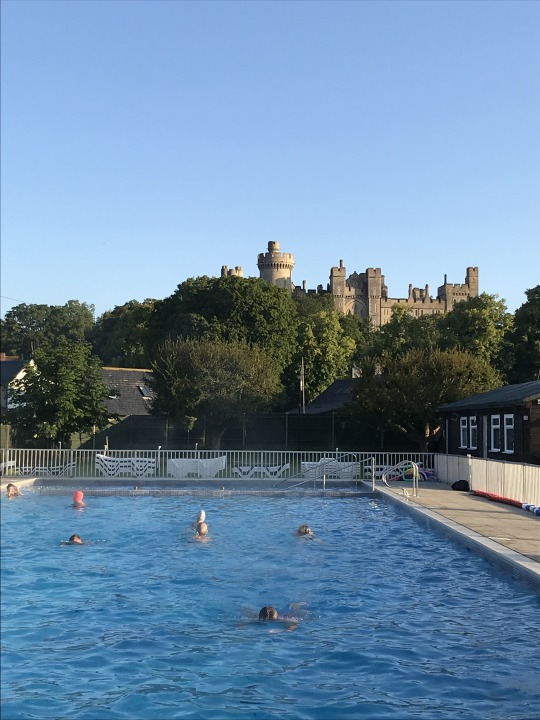
A couple of months ago a very close friend said they had quit Strava (the cycling, running and swimming recording app) as they were fed up with the negative feeling that had when they couldn’t cycle following an operation and seeing others out and about made them feel worse; not to mention feeling like they had to agree to cycle with people for fear they would see their ride and would feel cut out. I said I had toyed with the idea for a while, and the closest I had got at that point was to stop following a huge number of people and focus instead on those who I was really interested in seeing out and about and who I didn’t feel I had to ‘compete with’; both in terms of cycling and running performance, but increasingly with sport:life balance. Then another friend on hearing my diagnosis and my frustration said to throw away the Garmin, stop looking at Strava and cycle based on feel and not by numbers. And so I did. I logged out on my phone and have filed the app away. I don’t miss it in the slightest. My only regret is that there are some people who aren’t on other social media platforms that I actually used Strava to keep in touch with. I know a number of you reading this probably use Strava and for a long time it kept me motivated, particularly when I moved to the States and didn’t know anyone or have the confidence to join the local bike club. Waking up and seeing that friends at home had gone out for a ride got me moving. But then the pleasure went. I would spend too long looking at it, comparing my times and in the end not being able to see why I might not be improving at something. Getting frustrated seeing that other people (who were at a completely different stage of life to me) could spend so much more time cycling and running than I could. Now I see Strava very negatively as a platform for people to log their rides and get boosted by those around them. It’s not real interaction. For many it’s not a healthy tool; it’s something that makes them feel inadequate, for others it’s a way to show off their results - yes you got a PR at your ParkRun, but do you really need to tell the whole world. When did running or cycling have to be dictated by your watch or a little screen on your handlebars? Why not just get out there and enjoy being with those you are with, or focus on the no doubt beautiful surroundings? There are t-shirts that say ‘If it’s not on Strava did it even happen?’ and ‘If I crash, someone pause my Strava’… I get that these are tongue in cheek, but for some people this really is their concern. This little orange app on their iPhone increasingly rules their life, their training routine is dictated by it. Not only is it concerning to me from a mental health point of view, but from a physical standpoint too. I will never know whether my RA was caused by too much physical exertion, it’s certainly a possibility. The number of people I know who have chesty coughs they can’t shift because they feel they need to keep cycling even though they are ill (to hit their Strava weekly mileage target), who end up with aches and pains by trying to keep up with their friends’ annual mileage and work beyond their physical limits or in the most extreme cases take unnecessary risks on the bike to get a KOM or QOM on a ‘segment’ increasingly astounds me. I know that these thoughts may not be popular, and it’s just my personal opinion of Strava from experience. If you use it and enjoy it, keep at it. But take a few minutes and think, do you enjoy it for the right reason? Do you ever do stuff you shouldn’t in hope of seeing a little gold circle, cup or crown? Is it really worth it?

What a difference a year makes…
This time a year ago I was completing day one of 14 days and 1,000 miles of back-to-back cycling to complete Land’s End-John o’Groats. I was probably at one of the fittest points of my life, certainly in terms of cycling. Little phased me. The lumpier the ride, the better. The longer the distance, the bigger the challenge, the more it would push me physically, the more appeal it had. And then my body said enough.
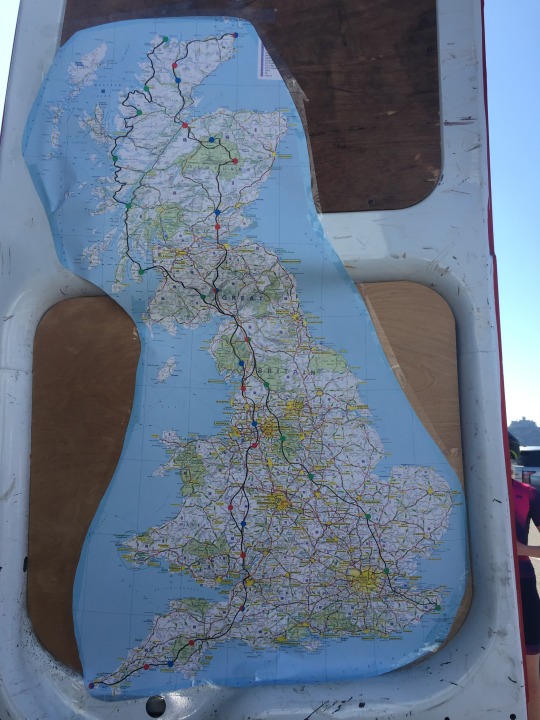
Looking back there may have been signs as far back as a year ago that I was beginning to have some issues with my body, but on the whole the 14 days whilst a challenge were totally achievable. Today I feel exhausted if I work a full day in the office and try and do some form of gentle exercise whether swimming or Pilates (two sessions in and I’m disappointed to report there is no sign of a six pack yet). The sofa is my territory on weekend afternoons. Not out of choice, but out of necessity when I run out of steam.
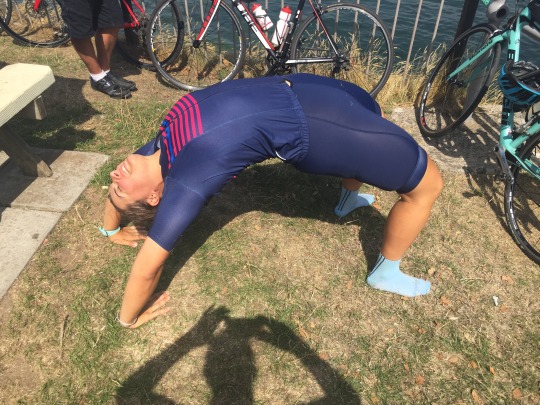
I don’t know what lies ahead in terms of physical challenge, whether I can expect to be able to sign up for some multi-day challenges next year or some one day classics. I am trying to focus on the here and now, getting out there if I feel good, but also not chastising myself if I feel whacked. At the beginning of July I ran a 10k trail run with a very good friend. We had planned it pre-diagnosis and I thought of it as a kind of last hurrah (I still don’t know if I’ll ever be allowed to get back to running), and how hard could 10k be? Well to say I ran it would actually be a complete lie. I managed two miles before my lungs, heart rate and feet started to wail and the heat of the hottest day of the year got too much. And so began a highly frustrating walk-run routine. I would walk and recover and think I could run, only for a few minutes later to feel completely wiped out once more. As we eventually neared the finish line (a 10k course which was actually over 7 miles) I was told there was a small climb to the finish and I spurred the man next to me on to run to the line and in the last moment managed to get my foot over the line in front of him (the finish strong mentality is still very much there, thanks Kevin!). As we crossed the line and I hugged my friend, something completely unexpected happened. My face and clothes that were soaked through with sweat and from being hosed down by spectators, were now being moistened by salty tears, uncontrollable tears flooding down my cheeks. I was frustrated. I was angry. I was mourning my former self. I mourn the fact that a few months ago a 10k was effortless, that a few months ago I had planned to run the 50km ultra marathon of the same event, that I will go home and be wiped out for days by it.
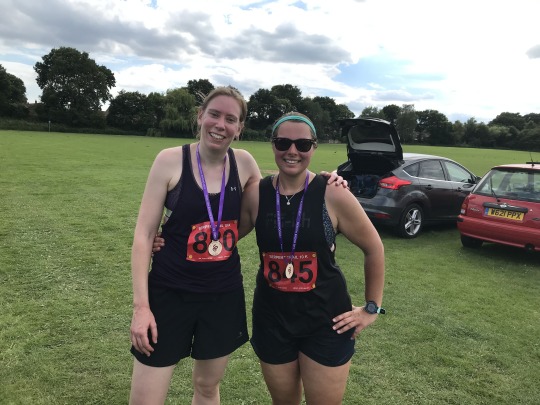
I constantly have to tell myself that it’s good I can still exercise at all, that I still have a fairly normally functioning body that means in time I will be able to cycle again, that I can swim, do yoga, Pilates and walk. And I should be grateful for that. I feel bad that I moan so much when a couple of close friends have become stricken by incredibly unfair events in recent months and currently are not able to use their bodies much at all. I feel guilty and selfish that I get so angry at feeling so restricted. I laugh when friends tell me they admire my positivity (I feel so lacking in positivity). Nothing stops the emptiness and inadequacy I feel at not being able to get out and live the life that until a few months ago I thought was unlimited.

1 note
·
View note
Photo
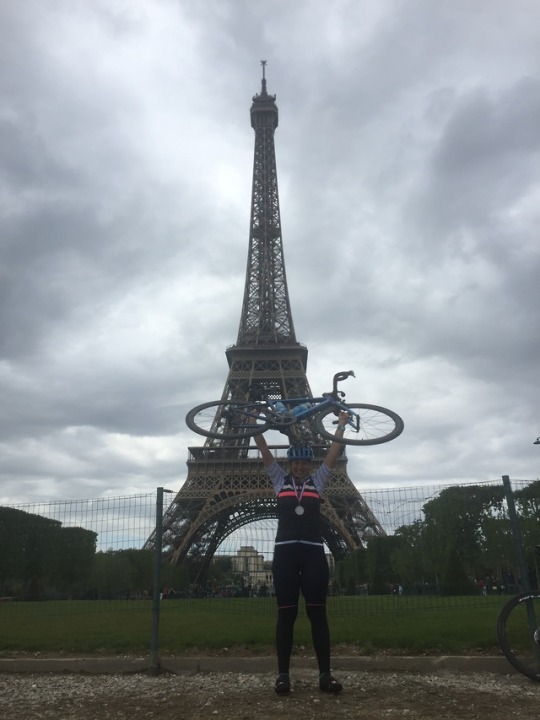
Investigation and diagnosis
The road to Paris
When I awoke at about 2am on the morning of May 4th, it wasn’t in excitement and anticipation that I was just a few hours later going to embark on the feat of endurance that is cycling from London to Paris within 24 hours as part of Challenge Sophie’s annual event. No, I awoke in agony with crippling pain in my right hand. I couldn’t form a fist without shooting pain and instantly felt a wave of anxiety flood over me. Not only did I wonder what was wrong with me, but I felt an immense sense of panic. How the hell was I going to cycle 200 miles with limited use of one hand? I was not just worried about the pain, more how would I handle the bike, grip the handlebars, and most importantly brake! I jumped out of bed and ran down to the kitchen to consume pain killers and anti-inflammatories and find a Rapid Ice to stick my hand into.
A few hours later Tom and I were on the train bound for the start line at Blackheath. The train was packed; standing room only, with our bikes precariously packed into the overcrowded carriage and my face crumbling in pain every time I was forced to grab the hand rail to hold on. I decided the best strategy was to keep moving my hand to avoid it seizing up further and gradually over the course of the day the pain abated.
Once the ride got underway the concern about the pain began to lift (in part because it did), mainly as we were confronted with unbelievable weather for the first May bank holiday weekend - torrential rain, followed by vicious hail and our fair share of strong winds - it was going to be challenging I appreciated, particularly as this was a last minute decision for me to join the ride, and had done no training, but this turned into a harrowing four hours on the first day. What on paper should have been a straightforward, and by our standards easy ride, was proving far from it.
Arriving at Newhaven heralded an enormous sense of relief, the chance to consume copious amounts of carbs (a favourite hobby of mine, and probably the one I excel at the most) and most importantly change into clean and dry kit and begin the next challenge of drying out shoes and staying warm, not to mention trying to sleep on the five hour ferry crossing.
The morning of May 5th began in earnest with us joking that the predicted bad weather was nowhere to be seen. Gathering before dawn to start pedalling again, there was an atmosphere of sleep-deprived, good-natured hysteria. Little did we know that within seven miles the first freezing cold rain would begin, quickly followed up with a chaser of yet more ice-cold and truly vicious hail. Thank goodness we were part of a peloton of 120 riders who had made a pact to cycle the first 30 or so miles to breakfast as a group. Yes, it meant the pace was slower than maybe we would have liked given the conditions, but I genuinely don’t know if either of us would have kept going if we’d done this as an independent duo - we’re tough, but this reduced even the hardiest of riders to teeth-chattering wrecks (personally I blame the previous year’s participants, including Tom, for bitching about how they endured the start of the 2018 heat wave). At the breakfast stop (after what seemed like an eternity of riding) Tom and I stuffed as much food and coffee into ourselves as possible and tried to get warm (an impossible task, it turned out). I genuinely wondered if we should continue, I was particularly worried about Tom with his lack of corporeal padding, but on we went and eventually we made it to the Eiffel Tower with time to spare - 37 minutes to be precise. It had been hard, the weather and fatigue had been a challenge, but all pain had evaporated, or at least been replaced with the general ache of long days in the saddle and the effects of having been unbearably cold.
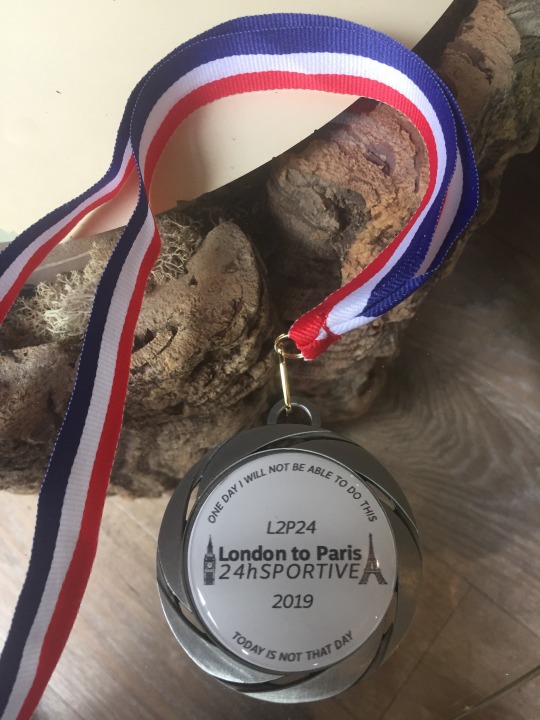
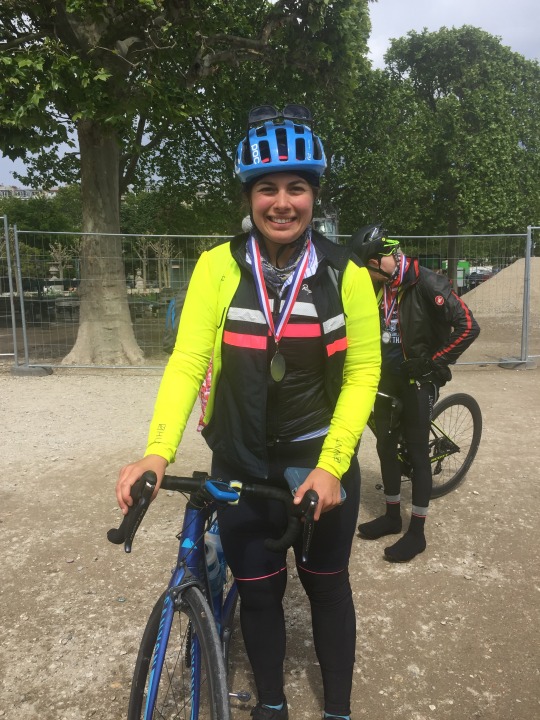
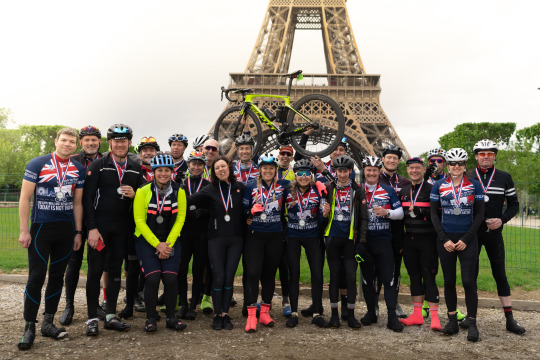
The road to diagnosis
I forgot about this weird hand pain and continued on my merry way, enjoying an immersive new job and putting my ever-growing tiredness down to spending nine hours a day at a desk staring at a computer screen, and my lifestyle transforming overnight from relatively active to largely sedentary. And then it happened again. About two weeks after the first attack, I was once again seized in the middle of the night by the same pain - overtaking my hand and wrist. It remained for the next 48 hours or so before my left hand began to hurt, although along the edges of my palm and wrist rather than the fingers and knuckles of my right hand. It struck me, it must be carpal tunnel. I knew it was something that tends to get progressively worse before you often need to resort to a surgical fix. A request for diagnosis from a couple of doctor friends over a drink in the pub one night, confirmed my Google self-diagnosis.
Sitting 36 hours later in a consultation room with a locum GP he told me it definitely wasn’t carpal tunnel and instead it sounded more like arthritis. He proceeded to unsuccessfully try and print off a request for blood tests and a prescription for anti-inflammatories to keep me going until the results came back. His inability to work the printer and the fact he didn’t agree with my Google-formed opinion (or that of my friends) instantly made me decide that I couldn’t trust this opinion (another doctor friend has since told me he is one of the best doctors around!). I am 29 years old, eight weeks away from my 30th birthday. I cannot have arthritis. So I duly trotted off to St Richard’s for a blood test the following Tuesday, and cracked on with the day to day.
Within 48 hours I received a phone call from the surgery; my usual GP would like to see me to discuss my test results. It didn’t need to be an urgent appointment, I was told, and so I assumed that the results had returned nothing and further investigation was needed. Nearly two weeks later I endured a 40 minute wait to see the Dr and safely ensconced in her office, she broke the news I had least expected to hear, and wanted to hear even less. At the age of 29 and now six weeks before my 30th birthday, the blood results showed I had arthritis. The tears came quickly, yet silently and trickled down my cheeks as it dawned on me what this could mean. My lovely, warm-hearted, good-humoured GP who has counselled me through so much over the past six months and has seen me transformed from an anxiety-ridden shell unable to speak back to a smily, bouncy, positive person told me not to get ahead of myself. Yes, it was highly unlikely I would be able to run the ultra-marathon I had only a couple of weeks before set my sights on. Yes, it was now a case that I would be medicated for life and have to practice damage-limitation to avoid any further degeneration of my joints. But, I could cycle, I could swim, do yoga, pilates and consider diet adaptions to keep the inflammation under control. The two of us quickly established that it was best for her to refer me to the rheumatology department at our local NHS hospital, but also to see a consultant who practised at the local private hospital so that I would know where I stand sooner rather than later.
You see, yes I can cycle. Cycling is in fact seen as one of the best activities for those living with arthritis. But is the cycling I choose to do going to be encouraged. Is powering up a 15% hill as hard as I can ok? Is putting everything into a sprint to beat my big brother to the coffee shop ok? How about a 2 week long endurance ride akin to the LEJOG challenge I completed last summer going to ruin me, or make me thrive? How about a week climbing in the Alps, Dolomites or Pyrenees? Or a 24 hour endurance challenge such as the one I completed when this whole sorry saga began?
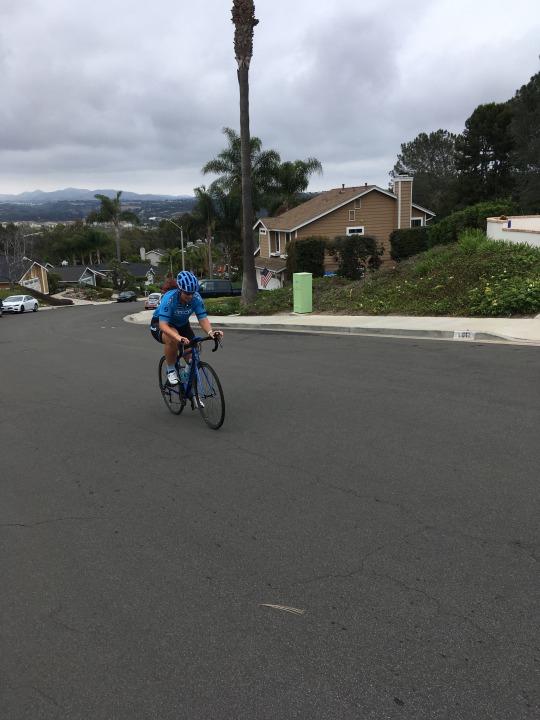
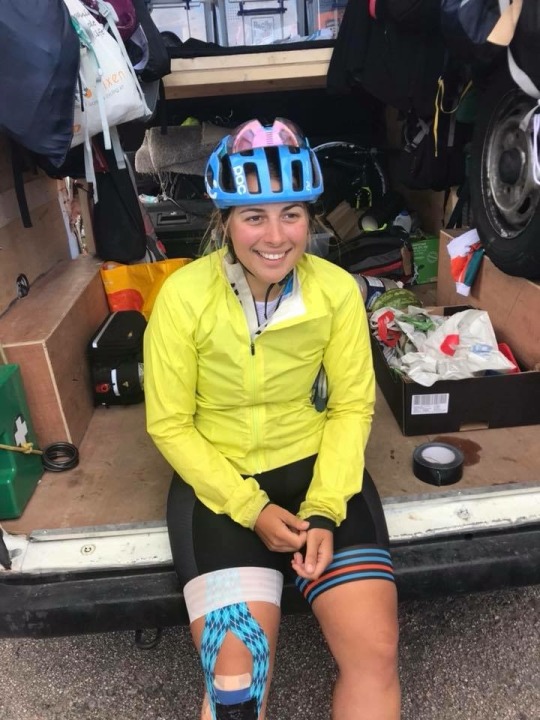
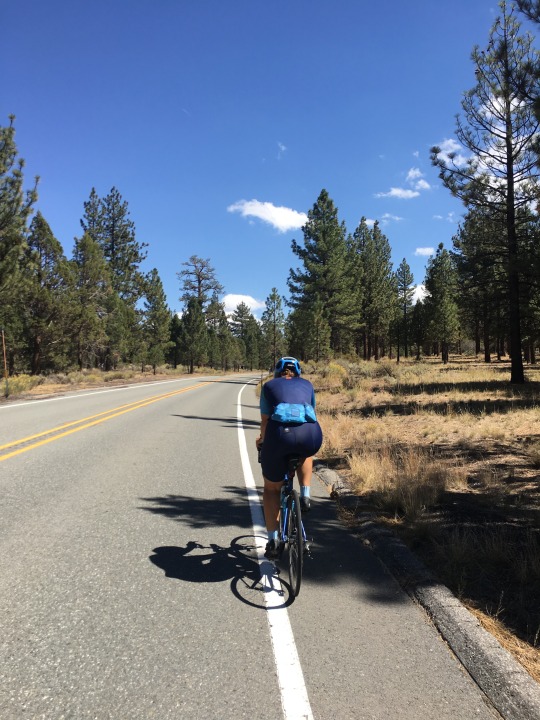
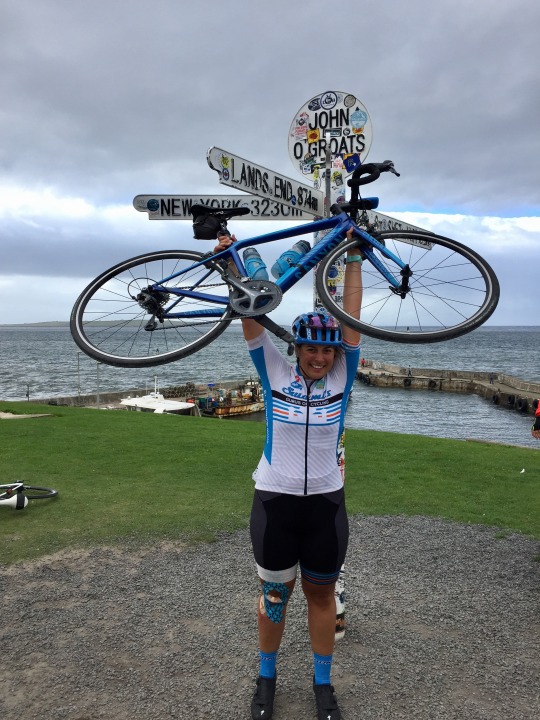
For those who know me even a little, they know that physical challenges are how I survive life. How I feel truly alive. Challenging myself physically, not knowing if I’ll complete it until the last millisecond, that is how I not only get my kicks, but keep my anxiety and greatest fears at bay and build confidence and belief in myself; something that only a few months ago had been eroded to non-existence. We often see such challenges and achievements as something to be celebrated; a sign of mental toughness as well as physical toughness. The other day someone who has endured hundreds if not thousands of miles pedalling next to (or more accurately in front of me) sent me a message saying: “you tend to push yourself very hard physically. I’ve observed many people in this regard, and your intensity is among the very best (worst?) I’ve seen.” Suddenly, someone whose opinion I had valued so much and who had always made me think that this commitment was a good thing, made me re-evaluate myself. Had I pushed too hard? Had I broken myself? Was I to blame for this?
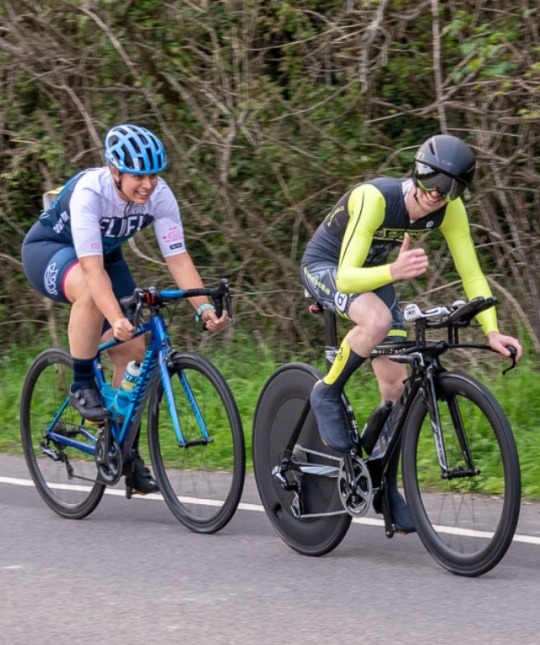
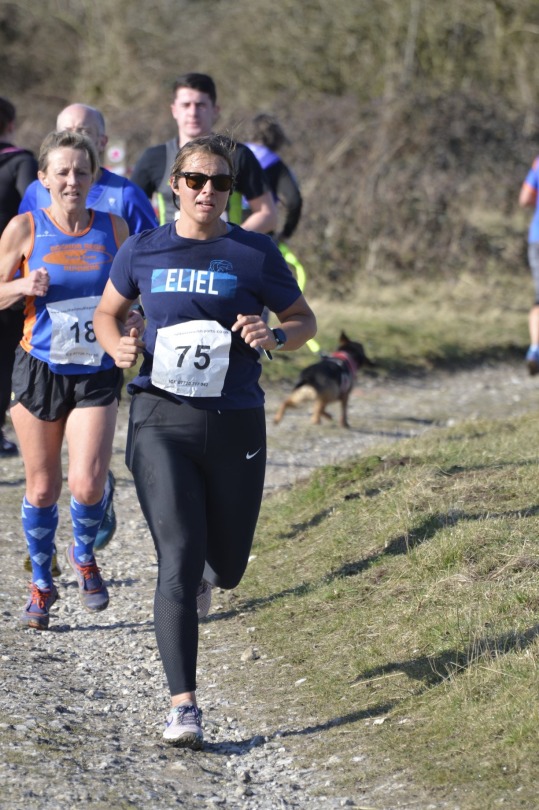
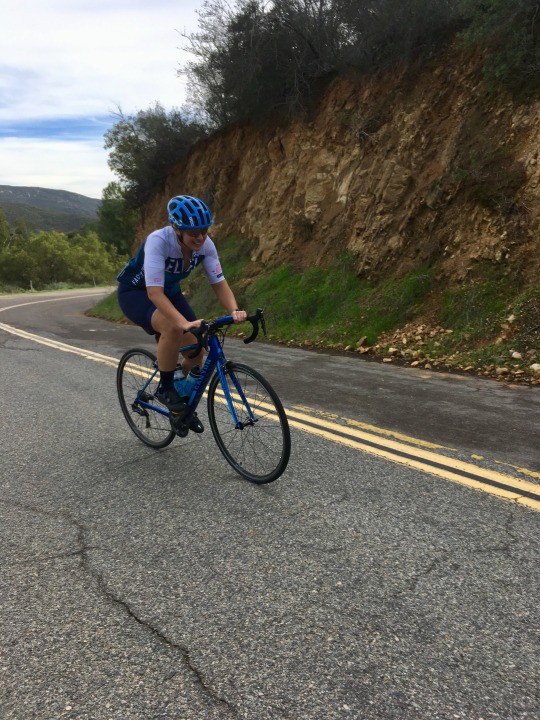
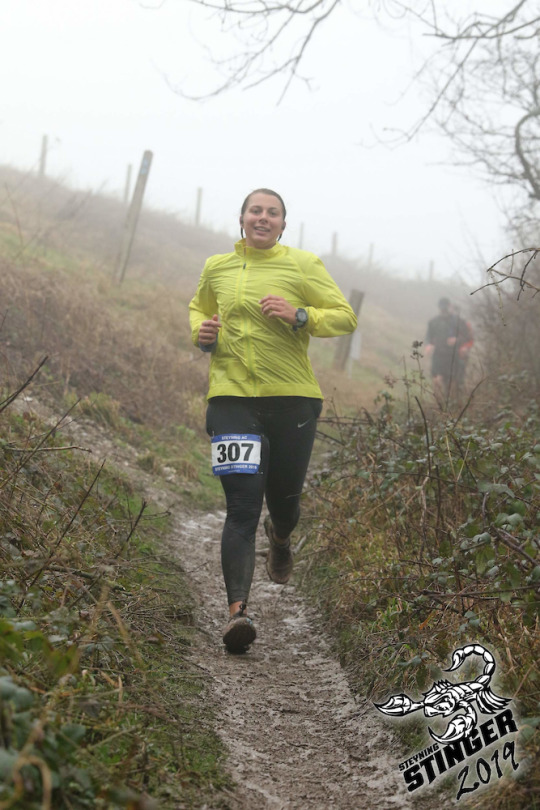
Today, almost six weeks to the day since my symptoms began and five weeks before my 30th birthday, I met by consultant, Sanj. After he quizzed me on my symptoms, he came up with the analogy of me recounting my experience so far as akin to a Beatles song coming on the radio (familiar and instantly recognisable to him): there was no doubt in his mind that I had inflammatory (or rheumatoid) arthritis. Again those silent tears sprung a leak. I guess I had this hope that he would disagree with the GP, say it was a one-off virus and nothing to worry about. No such luck, the exhaustion I feel is genuine, the pain in my elbow is not all in my head, it’s in fact totally swollen, the excruciating pain I have in my shoulder today is really there, and yes, it is why I feel physically sick - I’m a classic case; not worrying unnecessarily, I will feel like crap right now and it’s right I feel anxious and fearful for the future. He had a clever knack of giving me as much information as he felt was necessary but knew not to overload me or what could wait until we met again. I won’t know for another couple of weeks what the long term treatment will be, or what my most recent test results will suggest in terms of prognosis, but I do know that it will be a case of adaptation, ‘disease limitation’ and living life by evaluating truly how I feel each day. It might mean that sometimes the best laid plans will fall to pieces at the last minute, or I may even complete an unplanned challenge on the spur of the moment because I feel good. And that is going to be my biggest mental barrier to overcome. It’s ok to not put yourself under pressure every weekend to get out and put yourself through gruelling challenge, after gruelling challenge - I just need to remember that during my lowest moments.
How often do we say, “Oh I want to do that one day”? Make that day today, you never know what is round the corner. I thought I had years to enter Paris-Roubaix, the Tour of Flanders, cycle the Highland 500, run a marathon, run that ultra-marathon, cycle from the Channel to the Med - suddenly I am a lot less sure.
Keep this in mind: One day I will not be able to do this, today is not that day, but tomorrow could be. Don’t waste a day.
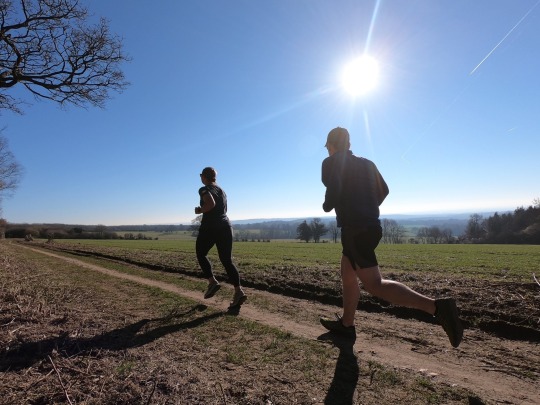
0 notes